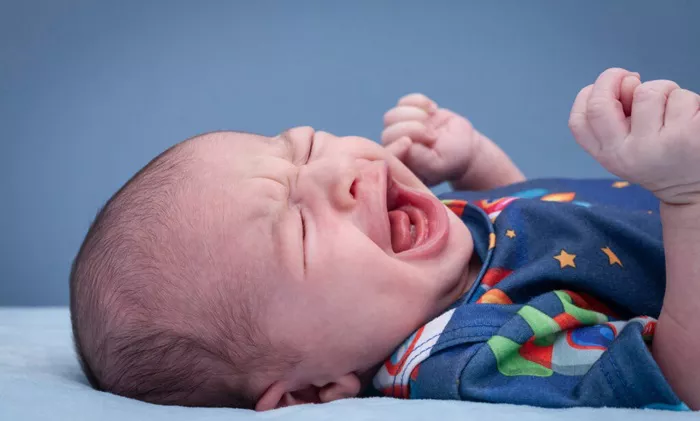Hiccups are a common occurrence for many individuals, and newborns are no exception. While it may seem unusual for such tiny bodies to experience hiccups, they are a typical reflex for infants. In this article, we will explore the causes, frequency, and implications of hiccups in newborns, providing parents with a comprehensive understanding of this phenomenon.
Understanding Hiccups in Newborns
What Are Hiccups?
Hiccups are involuntary contractions of the diaphragm, followed by a sudden closure of the vocal cords, which produces the characteristic “hic” sound. This reflex action can occur at any age but is particularly common in newborns.
How Common Are Hiccups in Newborns?
Most newborns experience hiccups frequently, often several times a day. This is a normal part of their development, and most parents will notice their babies hiccuping soon after birth. Hiccups can happen during feeding, when the baby is crying, or even when the baby is calm and relaxed.
The Mechanism Behind Hiccups
The diaphragm is a muscle that separates the chest from the abdomen and plays a crucial role in breathing. When the diaphragm contracts involuntarily, it creates a sudden intake of breath that is quickly halted by the closure of the vocal cords, resulting in a hiccup. In newborns, this reflex can be triggered by various factors.
Causes of Hiccups in Newborns
Feeding Issues
One of the most common triggers for hiccups in newborns is feeding. When a baby feeds too quickly, whether from breastfeeding or bottle-feeding, they may swallow air along with the milk. This can lead to stomach distension, causing the diaphragm to contract and result in hiccups.
Gastroesophageal Reflux
Some newborns experience gastroesophageal reflux (GER), where stomach contents flow back into the esophagus. This condition can irritate the diaphragm, leading to hiccups. While GER is usually mild and resolves on its own, it can contribute to frequent hiccup episodes.
Temperature Changes
Newborns are sensitive to temperature changes. Sudden changes in temperature, such as moving from a warm environment to a cooler one, can trigger hiccups. This reflex may serve as a response to help the body adjust to the new temperature.
Overstimulation
Newborns can become easily overstimulated by their environment, including loud noises, bright lights, or vigorous handling. This overstimulation can lead to increased stress on the body, causing the diaphragm to spasm and resulting in hiccups.
Emotional Responses
Like adults, newborns can experience emotional responses, such as excitement or anxiety. These emotional states can lead to changes in breathing patterns and may trigger hiccups as a result.
SEE ALSO: Why Infants Have Hiccups?
Frequency of Hiccups in Newborns
Normal Frequency
It is entirely normal for newborns to hiccup frequently. Many parents report that their babies experience hiccups multiple times a day. This frequency usually decreases as the baby grows older and their digestive and respiratory systems mature.
When to Expect Hiccups
Hiccups in newborns can occur at any time, but they are particularly common during or after feeding. Babies may also hiccup during sleep or while transitioning between different activities.
Typical Duration
Hiccups in newborns typically last for a few minutes but can sometimes persist for longer periods. In most cases, hiccups are harmless and resolve on their own without any intervention.
Are Hiccups Harmful to Newborns?
Generally Harmless
For the most part, hiccups are harmless and do not pose any significant risk to a newborn’s health. They are a normal reflex that many infants experience as their bodies adjust to the world outside the womb.
No Cause for Concern
Parents should not be alarmed by their newborn’s hiccups, as they are a common occurrence. Hiccups do not indicate any underlying health issues and are usually temporary.
When to Seek Medical Advice
While hiccups are generally harmless, parents should consult a pediatrician if they notice the following:
Hiccups lasting for an extended period (over 30 minutes).
Signs of distress or discomfort in the baby during hiccup episodes.
Difficulty feeding or poor weight gain.
Frequent vomiting or signs of gastroesophageal reflux.
Managing Hiccups in Newborns
Feeding Techniques
Parents can adopt several feeding techniques to help reduce the frequency of hiccups in their newborns:
Pace Feeding: Allow the baby to take breaks during feeding to minimize air swallowing. This technique involves holding the bottle horizontally and letting the baby suck at their own pace.
Burping: Frequent burping during and after feeds can help release any trapped air in the stomach, reducing the likelihood of hiccups.
Positioning: Keeping the baby in an upright position while feeding can also help prevent hiccups. This position can reduce the amount of air swallowed and aid digestion.
Comfort Measures
If hiccups do occur, parents can try various comfort measures to help soothe their baby:
Gentle Patting: Gently patting or rubbing the baby’s back can provide comfort and help them relax.
Distraction: Engaging the baby with gentle sounds or toys may help divert their attention from the hiccups.
Holding the Baby: Sometimes, holding the baby in a calming embrace can help them feel secure and relaxed, reducing hiccup episodes.
Home Remedies
Some parents may find success with certain home remedies for managing hiccups:
Warm Compress: Applying a warm compress to the baby’s tummy can provide comfort and relaxation, potentially easing hiccups.
Sips of Water (for older infants): For babies older than six months, offering a few sips of water may help soothe the diaphragm.
Conclusion
Frequent hiccups in newborns are a common and generally harmless occurrence. They are often triggered by feeding, temperature changes, or overstimulation. While hiccups may be concerning for some parents, they typically resolve on their own and do not indicate any underlying health issues.
By understanding the causes and frequency of hiccups, parents can take steps to manage this reflex and provide comfort to their babies. If hiccups persist or are accompanied by other concerning symptoms, consulting a pediatrician is always a good idea. In most cases, however, hiccups are just another part of the fascinating journey of newborn development.
Related Topics:


